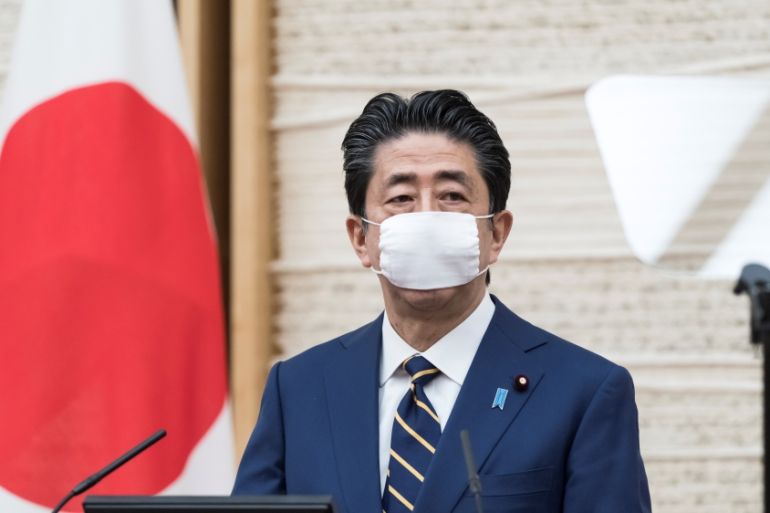Japan scientist ‘very pessimistic’ Olympics will happen next year
Japan and the International Olympic Committee made the unprecedented decision last month to delay the Games for a year.

A Japanese professor of infectious disease has said he is “very pessimistic” the postponed Tokyo Olympics can open in 15 months.
“To be honest with you, I don’t think the Olympics is likely to be held next year,” said professor Kentaro Iwata on Monday. “Holding the Olympics needs two conditions: one, controlling COVID-19 in Japan, and controlling COVID-19 everywhere.”
Keep reading
list of 3 itemsWhat happens if you catch the new coronavirus?
Euro2020 football tournament postponed
The Tokyo Olympics next July will be a “uniquely risky” event, demanding flexibility from organisers amid the uncertainty of the coronavirus pandemic, particularly if a vaccine has not been rolled out by then, medical experts say.
Japan and the International Olympic Committee made the unprecedented decision last month to delay the Games by a year, as the world battles the virus that has infected 2.3 million people and killed more than 150,000 globally.
But questions persist whether the Games can go ahead 15 months from now, as a vaccine could still be at least a year away, according to the most optimistic estimates.
“When we talk about bringing sports back, with packed stadiums, I really think that is something we are going to have to wait for a vaccine to be able to do,” said Zach Binney, an epidemiologist at Emory University in the United States.
Tokyo 2020 is set to run from July 23 to August 8, 2021, but organisers expect few changes to the original plan, including attendance by enthusiastic supporters.
But that might be overly optimistic, said Binney, a specialist in aspects of athlete health.
“Every person that you add to a gathering adds risk,” said Binney, who expects vaccine development would take one year to 18 months from the start of the outbreak, or until late 2021, at the earliest.
“So once you get up to 50,000, 70,000, 100,000 [fans] … that is an enormous amount of risk to be taking on without a vaccine.”
The Olympics was “a uniquely risky event”, he added, because of the threat represented by visitors streaming in from areas with a lot of infections, and the reverse flow when they return afterwards, perhaps carrying home infections.
Japan was spared during the initial stage of the coronavirus outbreak. But cases are now spiking, particularly in Tokyo and other large cities. As of Monday, there were about 12,000 detected infections in Japan and about 250 deaths.
The Olympics draw 11,000 athletes, while the Paralympic Games have about 4,400 competitors. Athletes are to stay in a sprawling housing complex on Tokyo Bay. The Olympics draw thousands of foreign visitors, relying on air travel to get them there and hundreds of hotels to house them.
Japan is spending $12.6bn to organise the Olympics although a government audit put the figure at twice that. Local estimates say the postponement will cost between $2bn and $6bn.